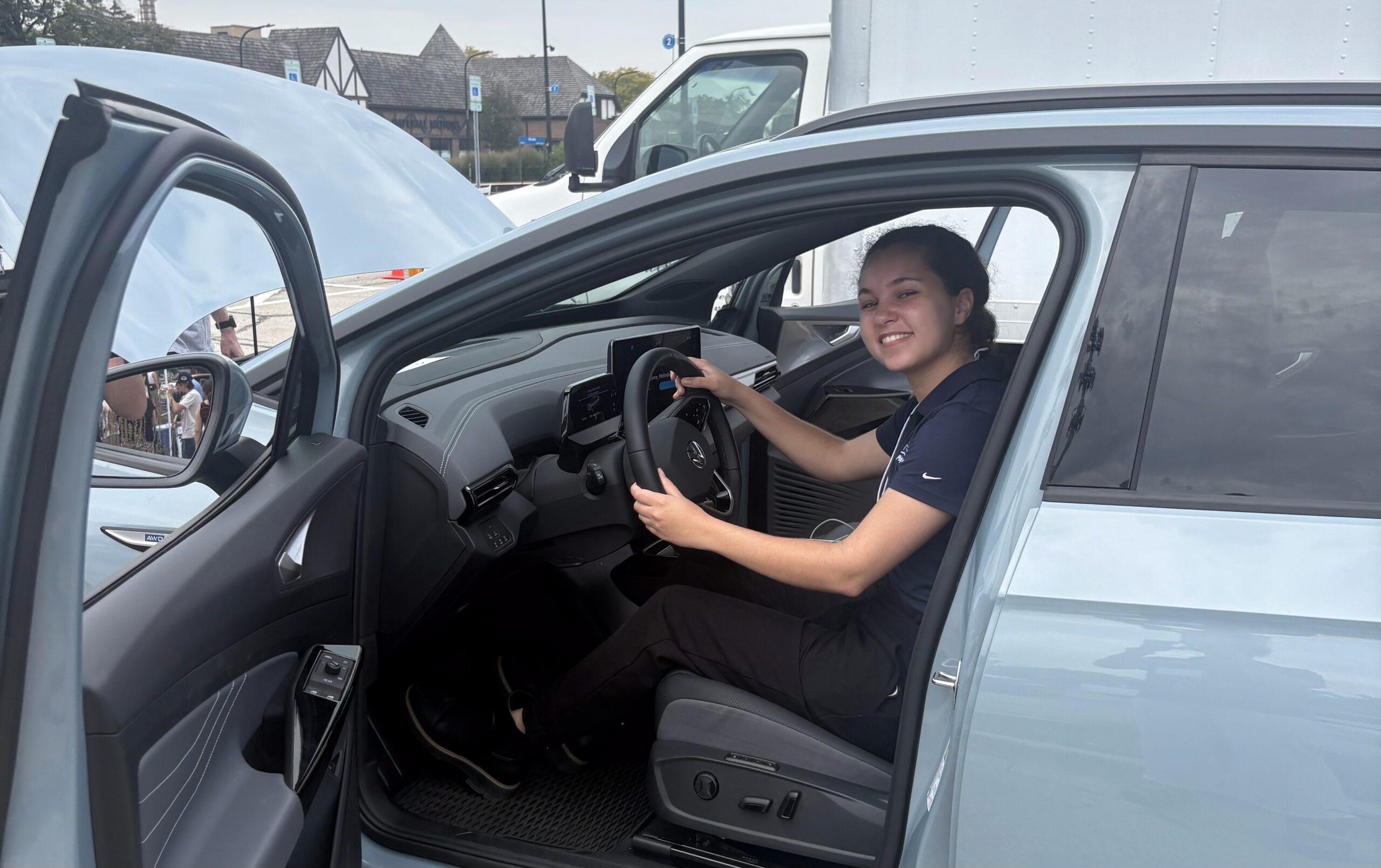Yes. Traditionally, the U.S. electric system was powered by massive power plants that produced electricity in a centralized location. This electricity was carried by transmission lines for hundreds of miles to local utilities that delivered power to homes and businesses. Today, distributed energy resources (DERs) generate electricity on a smaller, more localized scale. This makes the grid more resilient in two ways. Decentralizing energy generation means that if a natural disaster or attack damages part of the system, other areas will still have access to power. An EV can also store electricity in its battery and, through bidirectional charging, provide power to a home or business in the event of a power outage.
By: Plug In America
|
Published: 12.20.2024
Can EVs make the electric grid more secure and resilient?
Get more EV info in your inbox
Sign up for Plug In America’s newsletter to stay up to date with what’s coming down the road.
Related Articles:
By: Jess Senger
|
Published: 10.27.2025
From a recent college grad: Funding a better future is always worth it
I vividly remember the first time I saw the brand-new electric vehicle charging stations in a Walgreens parking lot when I had just started high school. I knew that these would be the first of many new accommodations for the cool and sustainable technology of the future. I had grown[…]
By: Plug In America
|
Published: 10.27.2025
A dream campaign cut short: How funding cuts are silencing EV driver stories
When Lindsey Perkins, communications and marketing director, got the news that the Department of Energy chose to fund Plug In America’s proposal for a nationwide EV education campaign, she was thrilled. This was the first marketing campaign of scale she conceptualized that she would have the opportunity to execute since[…]

